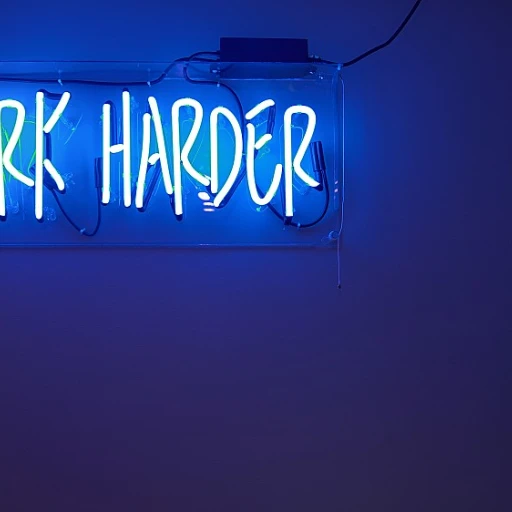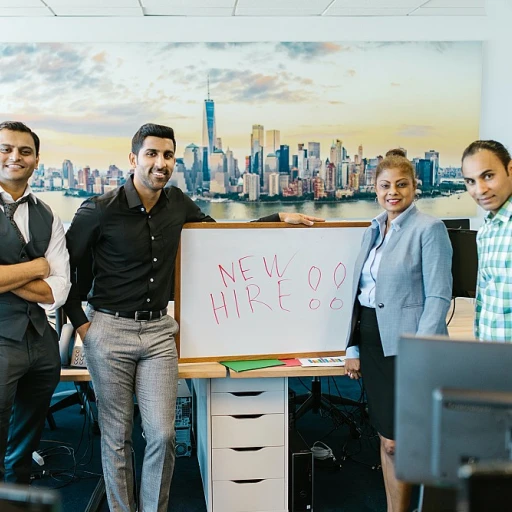
Understanding the Role of Professionalism in HR
The Importance of Professionalism in HR Roles
Understanding the integral role professionalism plays in Human Resource (HR) positions is crucial for both prospective employees and organizations aiming for success. Professionalism in HR isn't just a checkbox on a competency list; it's a critical driver of employee relations, effective communication, and overall organizational performance. In HR, professionals are not only tasked with recruitment and selection but also with creating a positive work environment where employees feel valued and engaged. This involves employing management skills that are both data driven and rooted in best practices. By doing so, HR employees can influence both short and long-term outcomes in an organization. Moreover, professionalism in HR is reflected in how work is managed, with a focus on professional development and training development for employees. It is necessary for HR professionals to have strong decision making and problem solving abilities, which contribute to effective resource management and the overall development of the organization's human capital. Due to the diversity and inclusion priorities in contemporary businesses, HR professionals are expected to navigate sensitive and complex situations with tact and respect. This highlights the importance of soft skills, which are essential for maintaining professionalism in any HR job role. For further insights into the nuances of HR interviews and professionalism, explore these effective strategies for mastering the HR job interview process with confidence.Preparing for the Interview: Key Professional Traits
Building Professional Traits for a Successful Interview
Embarking on a journey to excel in HR job interviews requires the development of professional traits that resonate with the hiring panel. Having a robust understanding of the key professional characteristics can significantly elevate your candidacy and demonstrate your commitment to the role and its responsibilities. Here are some crucial professional traits to focus on during your preparation:
- Effective communication: This is an indispensable trait for any HR professional. Being able to articulate your thoughts clearly and listen actively are crucial skills. Consider honing these abilities through resources like mastering communication skills for HR job interviews.
- Problem-solving skills: HR roles often involve addressing complex issues and making data-driven decisions. Showcasing your problem-solving abilities can indicate your capability to handle challenging situations that may arise in the work environment.
- Adaptability and flexibility: The dynamic nature of human resources demands professionals to be adaptable. Demonstrating your willingness and ability to adjust to new business processes and organizational changes can be advantageous.
- Teamwork and collaboration: Working effectively within diverse teams is crucial. Highlight experiences where your actions positively impacted employee relations or contributed to achieving organizational goals.
- Continuous professional development: Being committed to training and development enhances your skills and sets you apart as a proactive employee. This dedication reflects your long-term career aspirations and your intent to add value to the organization.
Preparing with these key professional traits in mind not only helps in presenting yourself as a competent candidate but also in aligning with the human-centric values that many HR departments prioritize. Strive to portray an authentic image of a resourceful and effective HR professional.
Effective Communication: The Cornerstone of Professionalism
Conveying Clarity and Confidence Through Dialogue
Effective communication serves as the foundation of professionalism in HR job interviews. Whether you are responding to questions or presenting your viewpoints, it is vital to articulate your thoughts with clarity. An essential aspect of this is ensuring that the conversation maintains a sense of direction and insightfulness, reflecting both confidence and expertise. Be mindful of your verbal and non-verbal cues. This includes the tone of your voice, which should be calm and measured, signaling that you are at ease. Strong interpersonal skills come into play here, as they help in creating a dialogue where both parties feel heard and understood.Listening as a Key Communication Component
Listening actively during the interview not only shows respect but also helps in accurately addressing the interviewer's questions and concerns. It provides you with the opportunity to tailor your responses appropriately. Make sure to paraphrase or ask clarifying questions if needed, which can help in demonstrating your interest in understanding the intricacies of the role and the organization’s expectations. Practicing this aspect of communication can be beneficial, as it is a core component of effective human resource management and decision making.Structured Articulation and Soft Skills
Communication in the HR context often involves discussing sensitive topics, such as diversity and inclusion, employee relations, and performance management. Here, articulate your perspective clearly, and back it up with data-driven insights wherever possible. This approach reflects your ability to handle complex human resource scenarios with professionalism. Your soft skills, such as empathy and adaptability, are crucial during these interactions. They align with best practices in professional development and can greatly enhance your employee experience in a new role. Consistently engaging in training development helps in honing these skills. Remember, your goal in the interview is to create an atmosphere of mutual understanding and respect. For more insights on maintaining security and professionalism, check this guide on remote employee monitoring and preventing data breaches.Dress Code and Body Language: Making a Professional Impression
Appearance Matters: Dress Code and Body Language
Maintaining a professional appearance in HR job interviews plays a crucial role in creating a lasting first impression. As professionals, it is essential to understand how attire and body language contribute to how we are perceived in a business setting. Choosing what to wear can influence the hiring manager's perception of your professionalism. Organizations can differ in their dress code expectations, from business casual to more formal attire, so researching the company culture beforehand will give you a great advantage. Demonstrating respect for the workplace through appropriate clothing displays an understanding of employee, employer, and organization roles. Equally vital is the non-verbal communication conveyed through body language. Employers appreciate professionalism that extends beyond word choice. Pay attention to the following elements to enhance your overall professional demeanor:- Posture: Sitting and standing straight conveys confidence and readiness to engage effectively. Slouching can suggest a lack of interest or energy.
- Eye Contact: Regular eye contact shows you are attentive and participating actively in the conversation, important in assessing employee relations skills.
- Gestures: Appropriate gestures can emphasize your points during the discussion but avoid excessive movement that might distract from your message.
- Facial Expressions: A welcoming smile can make employees feel comfortable and communicate positivity, but remember to adjust your expression to the conversation's tone.
Handling Difficult Questions with Professionalism
Addressing Challenging Inquiries with a Professional Demeanor
Navigating difficult questions in HR job interviews is a part of the journey where your professionalism is truly put to the test. Here are some strategies and techniques to ensure you maintain your poise and credibility when faced with challenging inquiries:- Adopt a Data-Driven Approach: When asked complex questions, particularly those related to resource management or organizational performance, rely on data to inform your answers. For instance, refer to metrics and past experiences in employee relations or recruitment selection that showcase your skills in problem solving and effective decision-making.
- Emphasize Professional Development: Difficult questions often aim to assess your willingness toward continuous improvement and development. Highlight past training or development programs in which you participated, and how they have equipped you with the soft skills necessary for adapting to diverse work environments.
- Showcase Mature Empathy: Address questions surrounding diversity and inclusion with empathy and understanding. Share examples of how you have fostered an inclusive culture within your previous organizations, whereby employees feel valued and supported.
- Remain Calm Under Pressure: The ability to stay composed, even during strenuous moments, reflects strong management skills. Use effective communication to clearly convey your thoughts while considering the broader context of the business and the role you are applying for.
- Clarify When Necessary: If a question seems ambiguous or overly complex, do not hesitate to seek clarification. This reflects a data-driven decision-making process and ensures that your response is aligned with what the interviewer seeks to understand.
- Reflect on Best Practices: Conclude your responses by aligning them with recognized best practices within the human resources field. This shows your commitment to maintaining the highest standards of professionalism and performance excellence.
Post-Interview Etiquette: Maintaining Professionalism
Maintaining a Proactive Relationship
Once the HR job interview concludes, it is important not to view it as the finish line but as a step in ongoing professional engagement. Demonstrating professionalism extends beyond the interview room, playing an essential role in your overall job performance and human resource relations. Consider the following best practices for maintaining a professional demeanor post-interview:- Timely Follow-Up
- Reflect and Learn
- Stay Informed
- Embrace Continuous Development
- Strengthen Professional Networks












